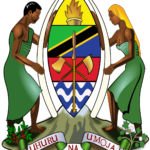women from villages such as Samanga, Kirongo Juu, and Sangasa are facing mounting challenges due to an increasing monkey population.
These creatures, which travel in large groups during the early mornings and evenings, have become a source of fear and distress, especially for those who must walk alone.
Local women say the monkeys have disrupted their lives in more ways than one. “We are scared to walk around without our husbands,” one woman shared, describing how the primates can be aggressive and unpredictable. Residents report that when monkeys invade their homes or farms, they don’t just snatch food or crops—they often encircle people, creating a tense and potentially dangerous encounter.
The monkeys have also been wreaking havoc on agriculture, with farmers struggling to maintain their crops. For over seven years, the primates have caused considerable damage to their fields, making it difficult for them to sustain their livelihoods. The loss of crops has led to economic strain and increased food insecurity for the community.
Also Read; Prime Minister Urges Action on Market Fire Prevention
Despite these persistent issues, promises of assistance from local authorities have yet to yield meaningful change. “We keep hearing that something will be done, but nothing has happened so far,” said Prediganda Shayo, a resident of Samanga. This frustration is shared by many, as the villagers feel their appeals are falling on deaf ears.
The Rombo District is part of the broader Kilimanjaro National Park ecosystem, known for its rich biodiversity. However, this also places the human population in close proximity to wildlife, leading to conflicts that are hard to manage without proper intervention. Experts suggest that solutions need to balance wildlife conservation with human safety and economic well-being, a process that calls for stronger collaboration between the community and authorities.






